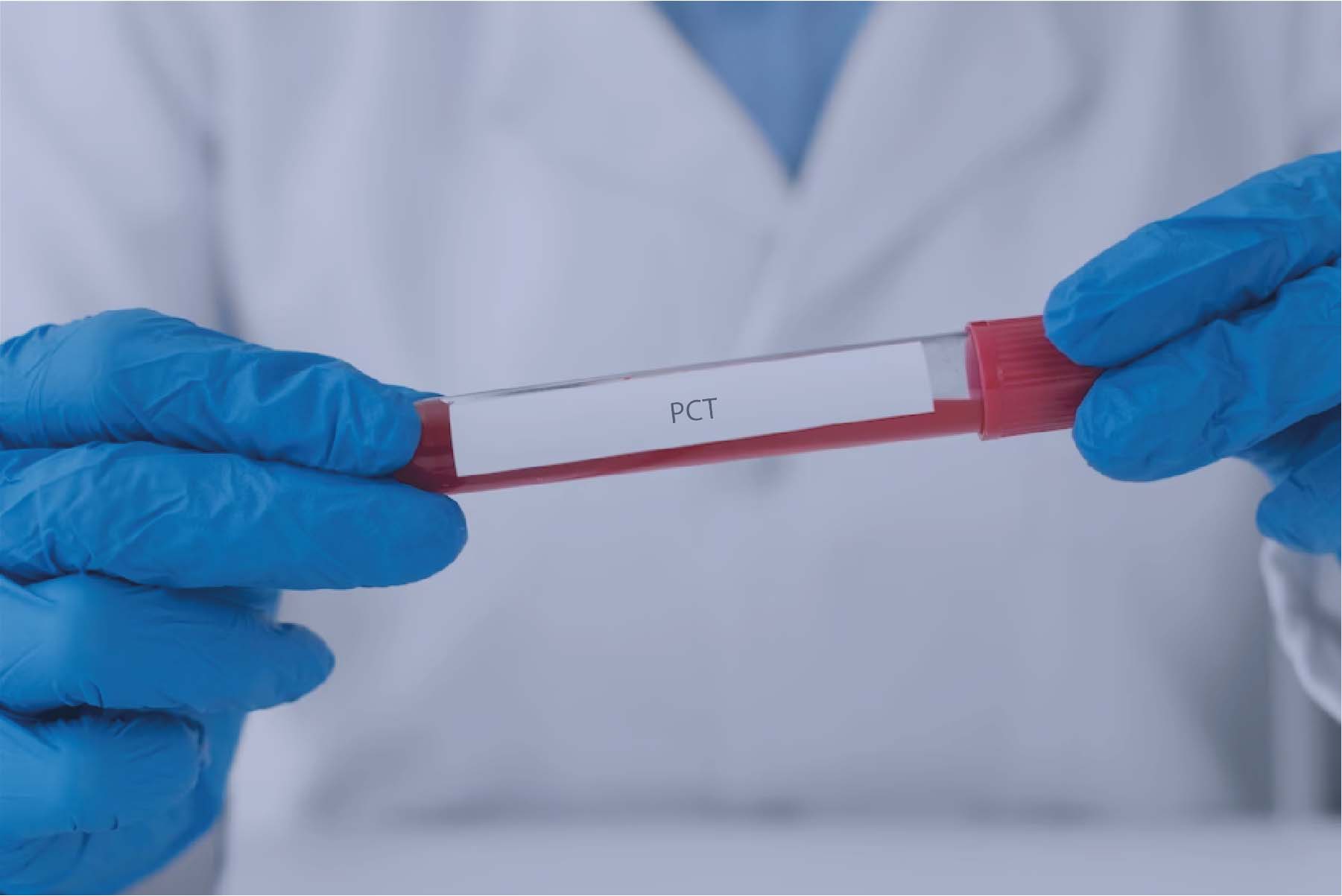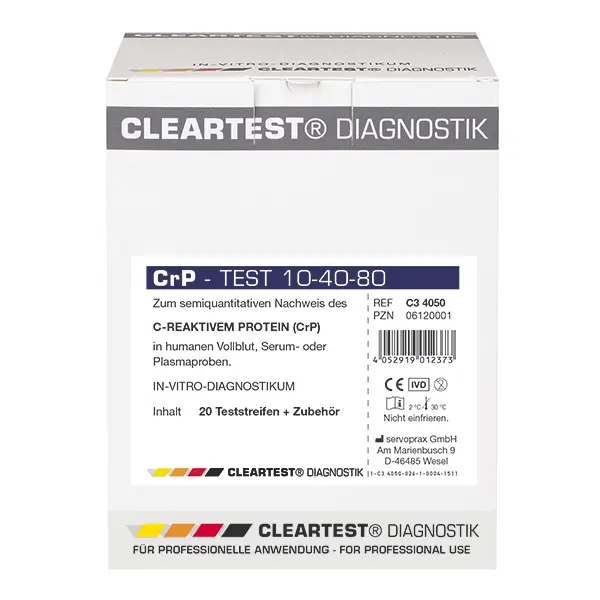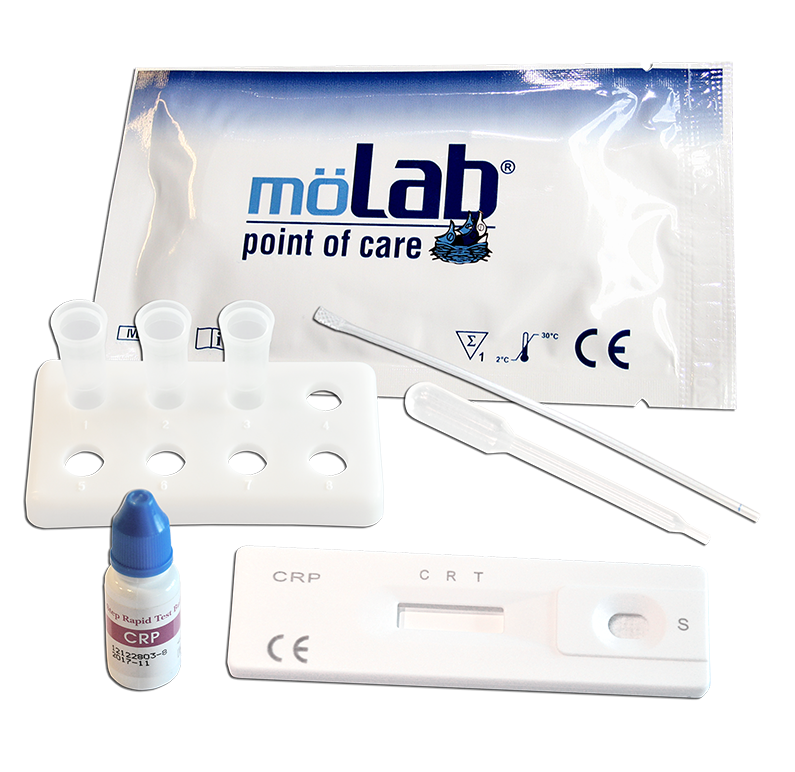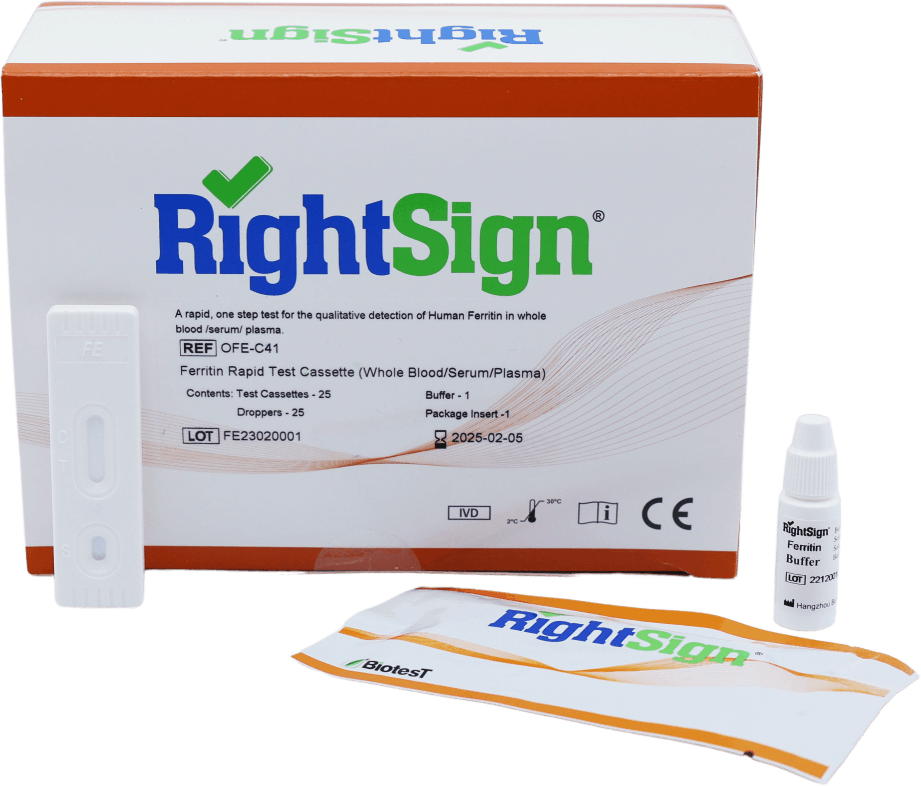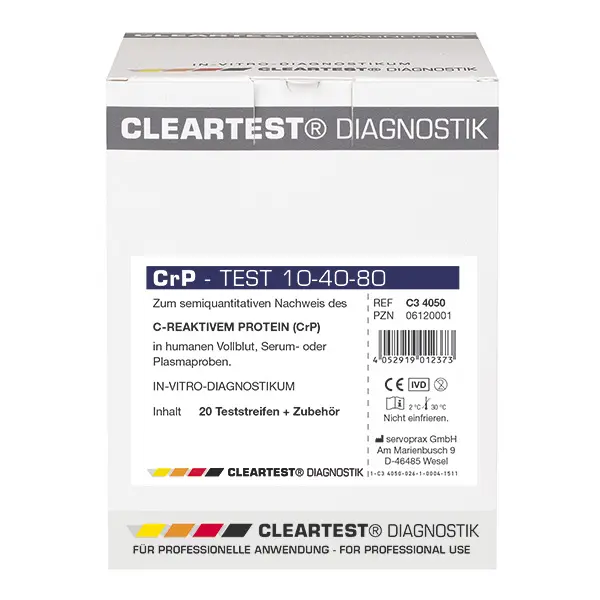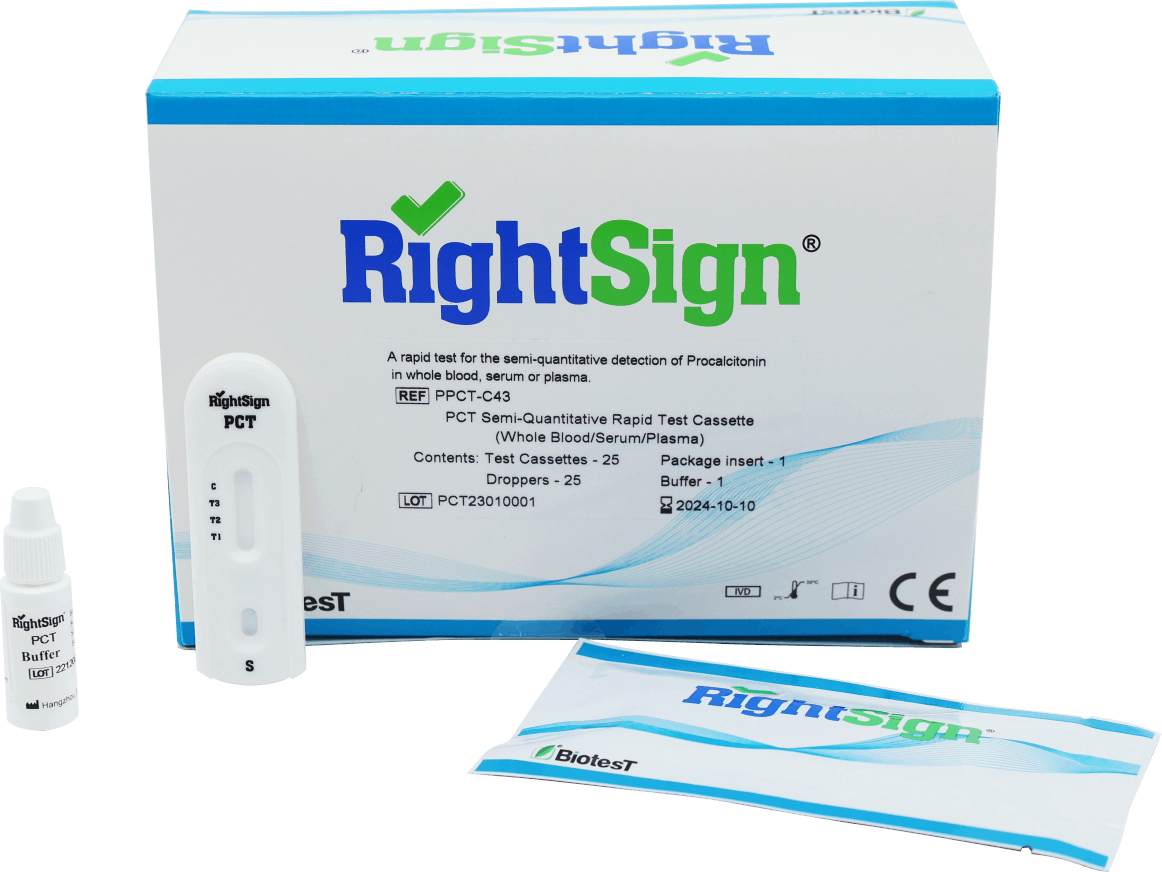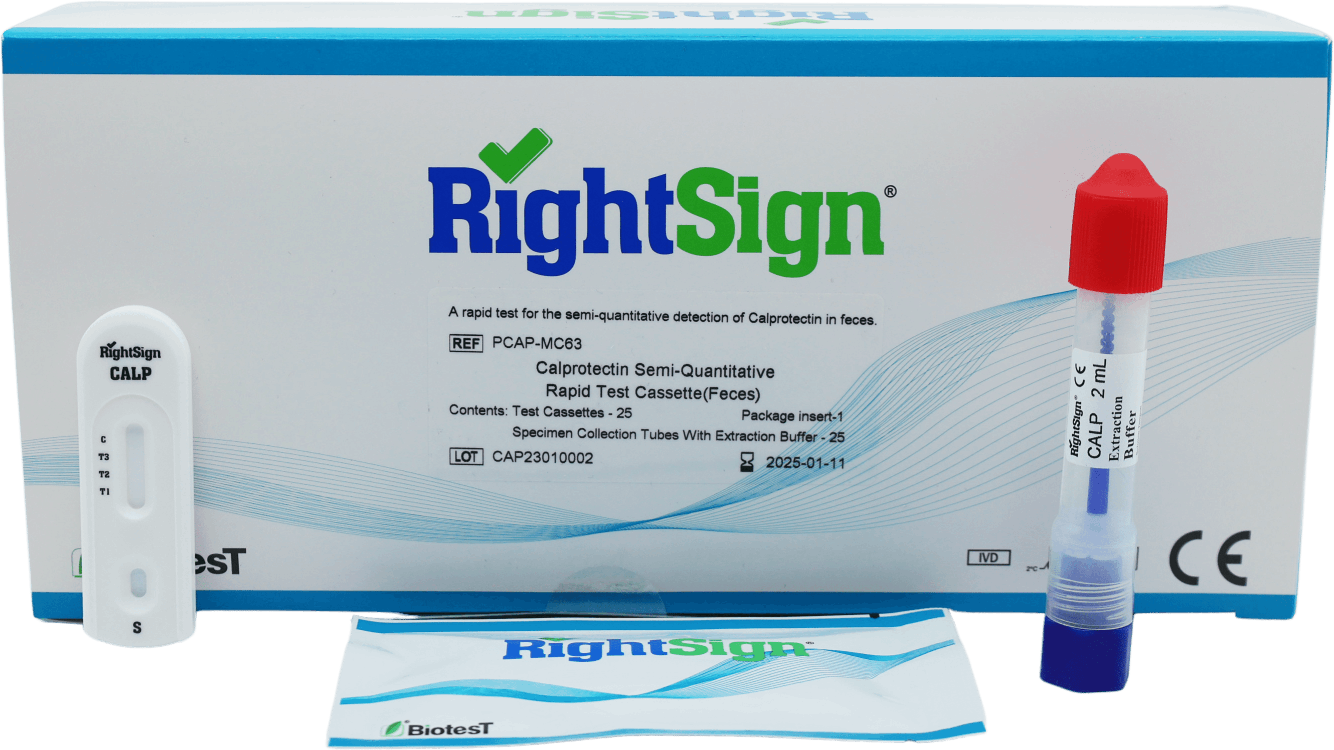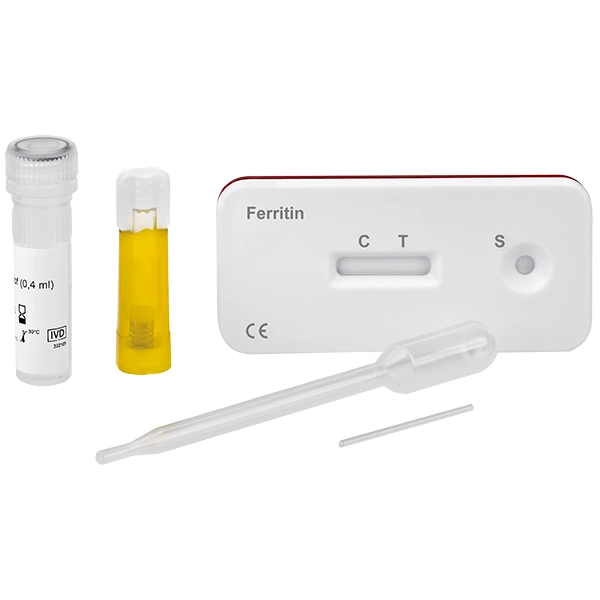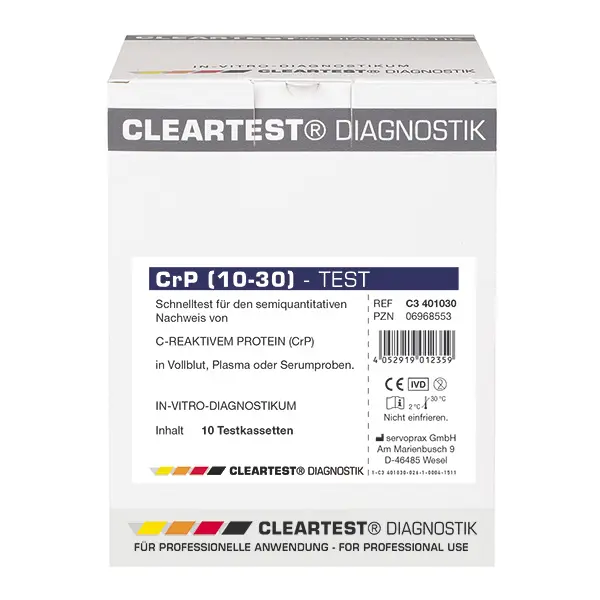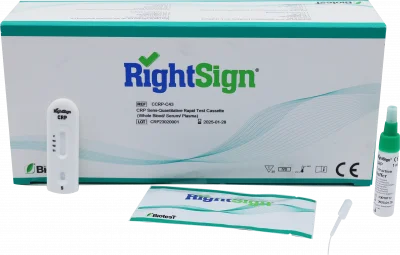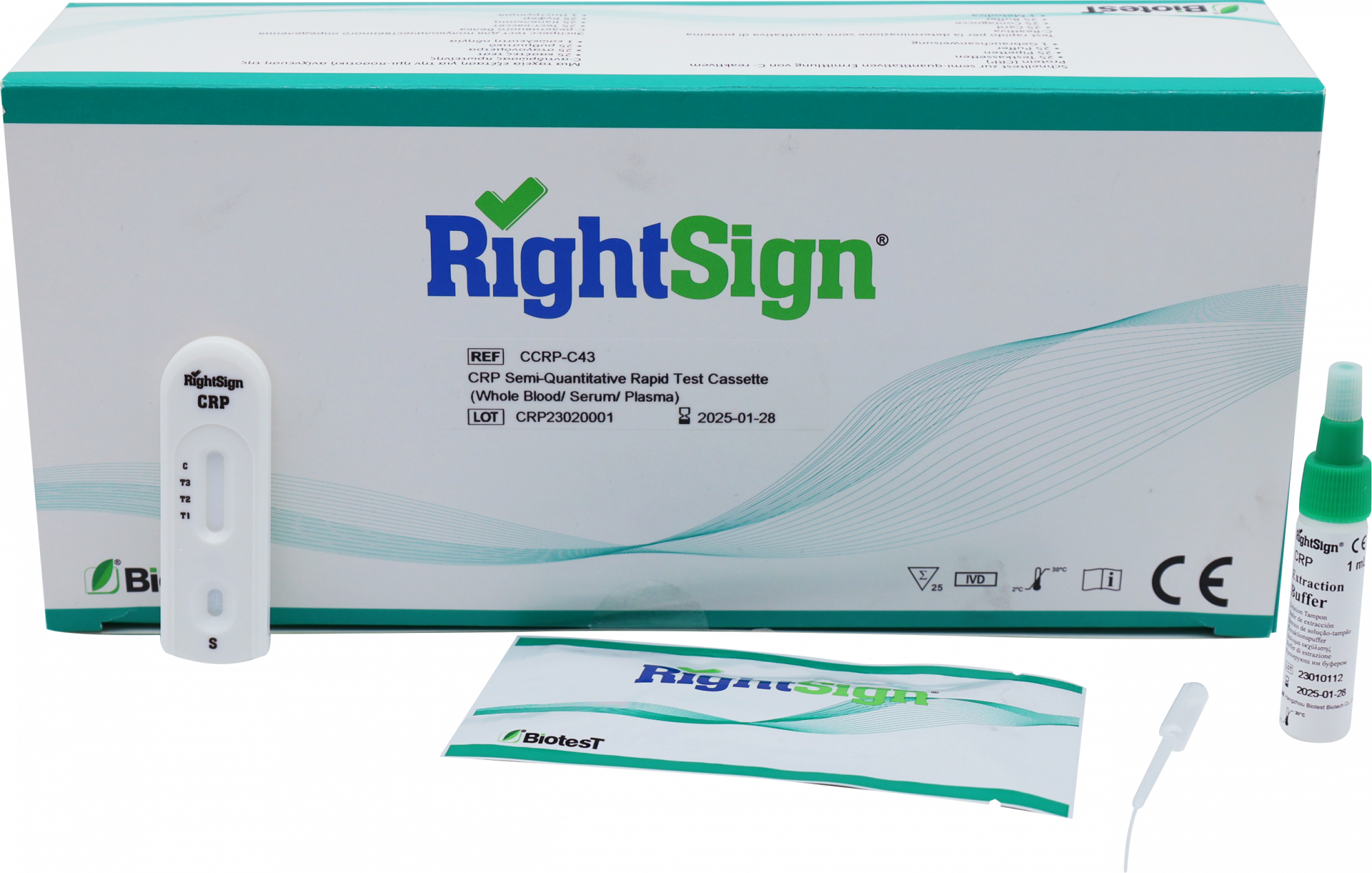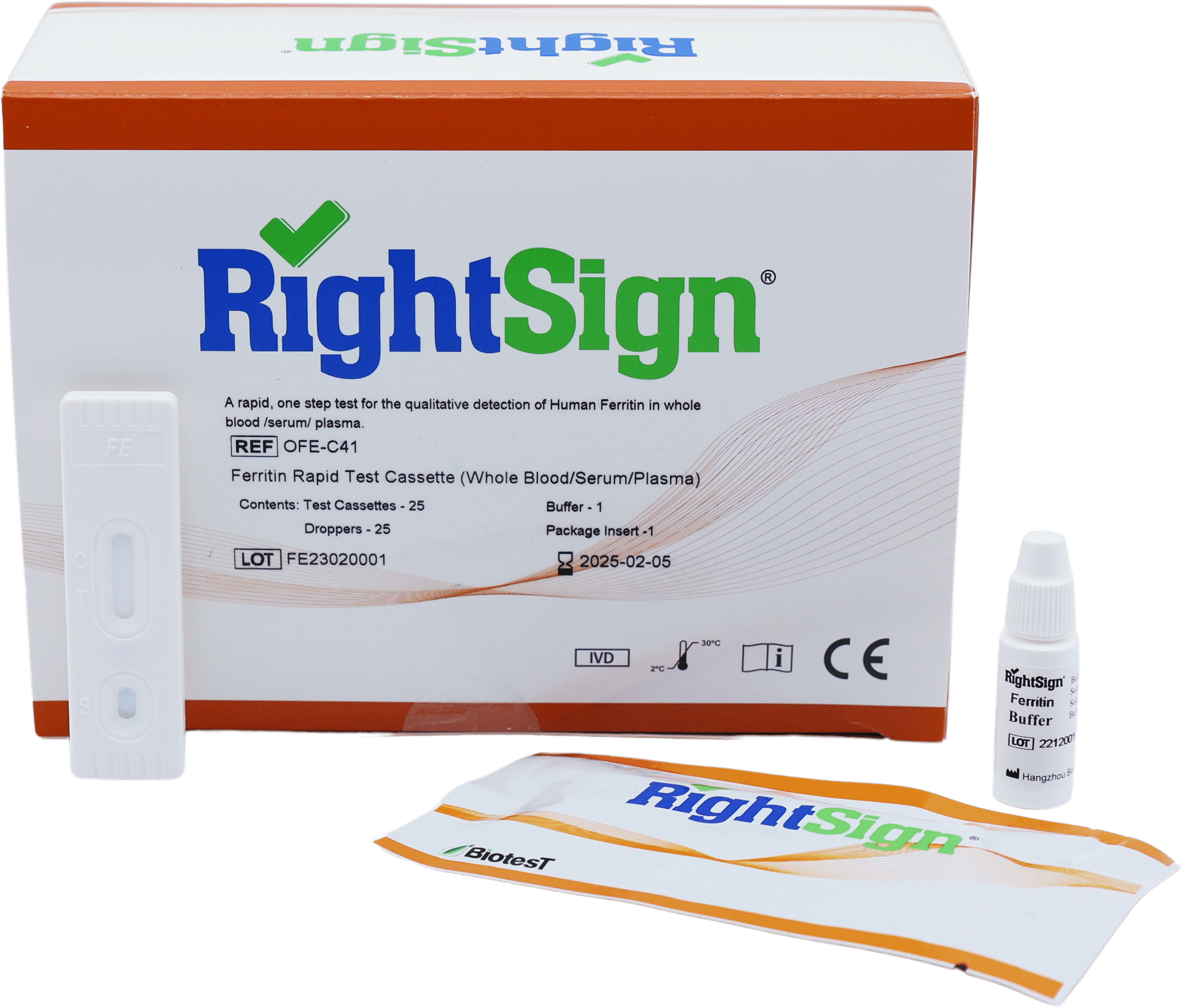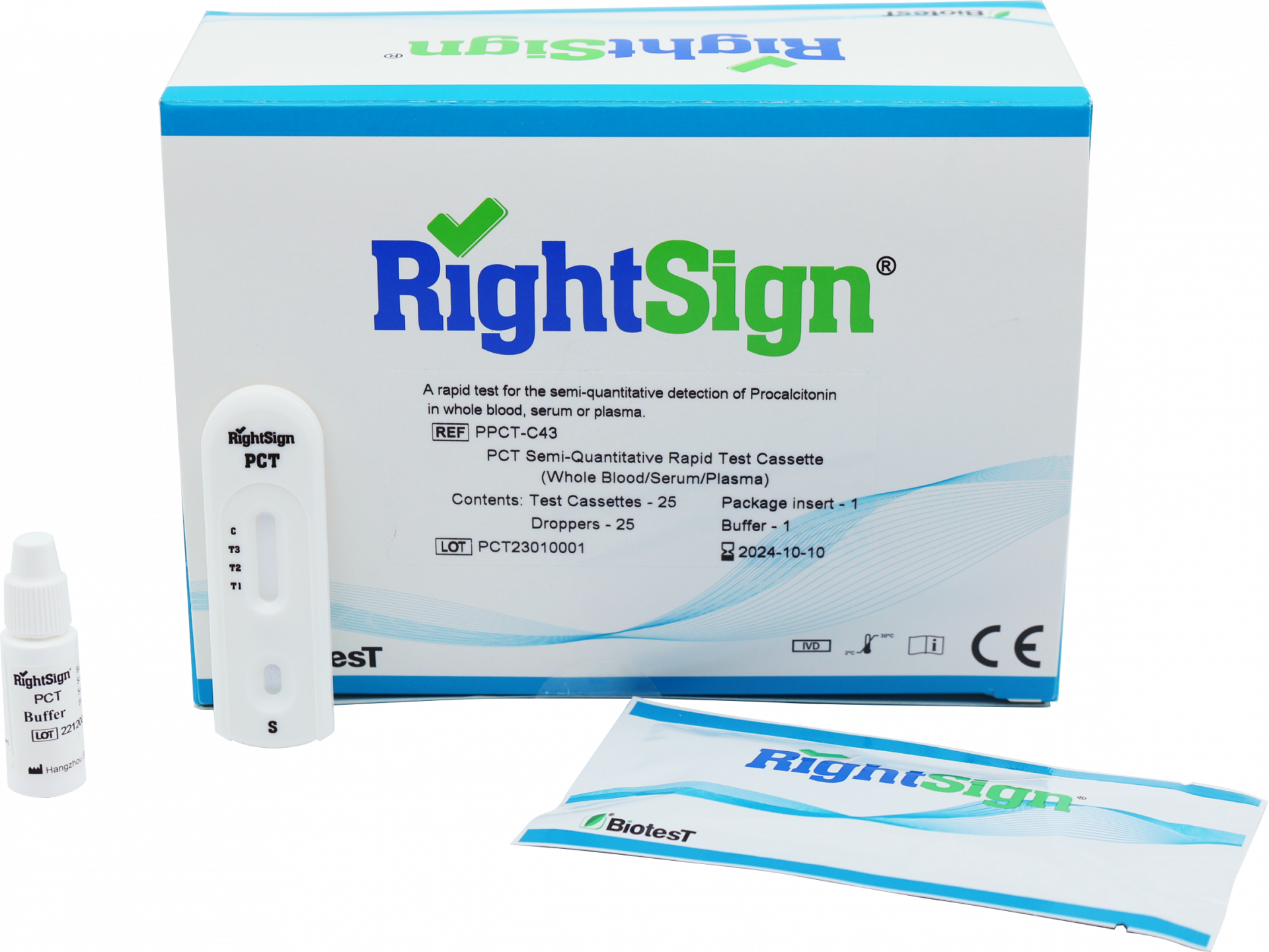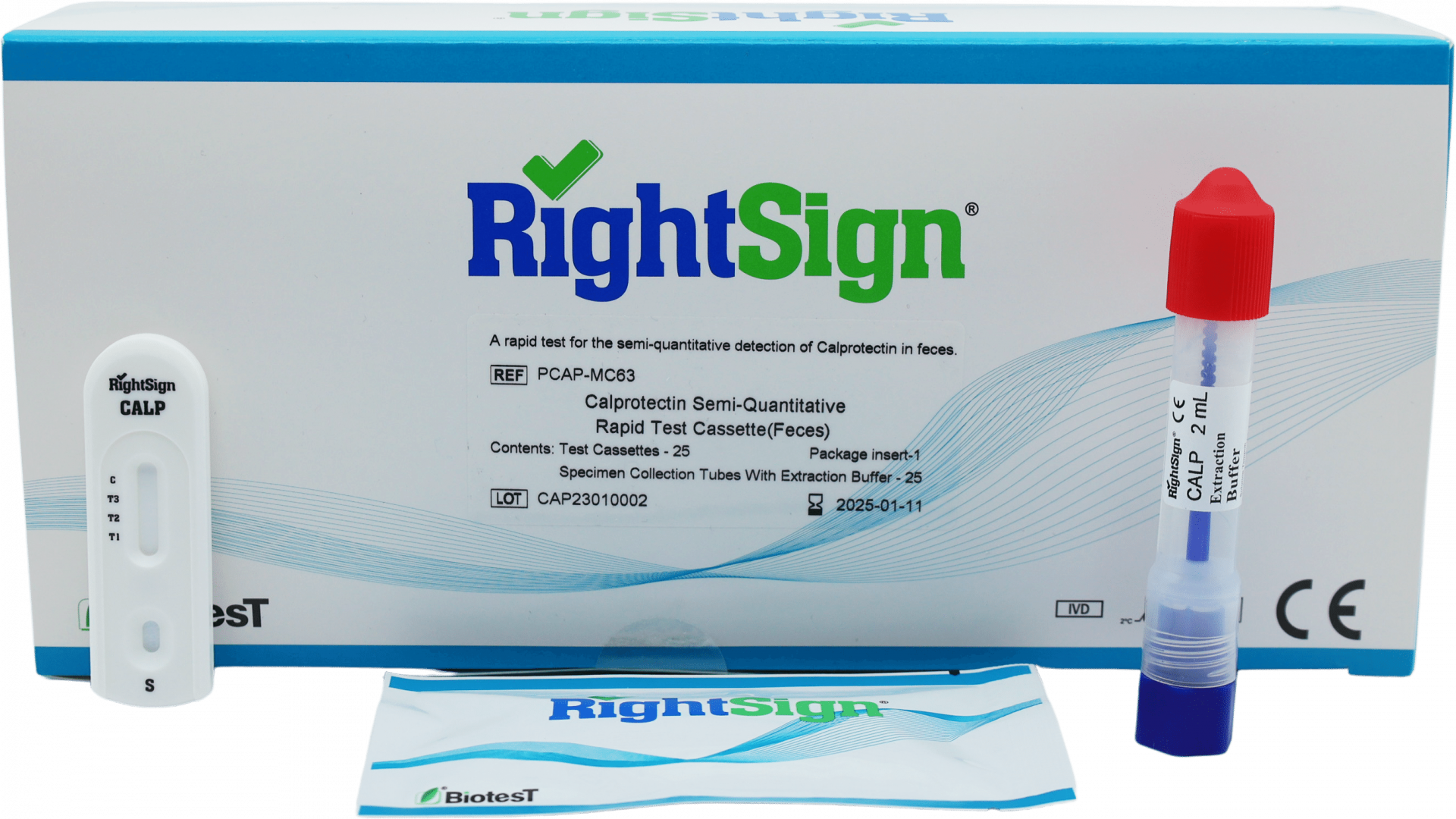Buy Inflammation Marker Tests
Our inflammation marker tests at OdemShop enable precise assessment and monitoring of inflammatory conditions. They provide valuable information for an effective treatment strategy.

Tests for Inflammatory Markers
In the realm of clinical diagnostics, the quantification of inflammatory markers serves as a cornerstone for the detection and monitoring of various pathological conditions. These biomarkers—ranging from acute-phase proteins like C-reactive protein (CRP) to cytokines such as interleukins act as harbingers of the immune response, often revealing the presence of underlying inflammation before the manifestation of clinical symptoms.
Tests designed to assess these markers are invaluable in guiding clinicians towards more accurate diagnoses and tailored treatment strategies. Given the complexity of the inflammatory cascade, however, interpreting the results of such tests requires a nuanced understanding of the pathophysiology at play.
What are Inflammatory Markers and why are they important?
Inflammatory markers are substances produced by the body in response to inflammation, serving as indicators of underlying health conditions ranging from infections to chronic diseases.
Their measurement is crucial in the clinical setting, as they provide valuable insights into the extent and activity of systemic inflammation within a patient.
Elevated levels of these markers can prompt further investigation and management, guiding healthcare professionals in making informed decisions regarding diagnosis and treatment.
Understanding Inflammation as an Underlying Mechanism for Various Diseases
Although often perceived as a negative response, inflammation is a crucial biological process that, when chronic or dysregulated, can serve as a harbinger for a multitude of diseases, making the measurement of inflammatory markers a vital aspect of medical diagnostics.
Markers of inflammation include C-reactive protein and interleukins, which signal systemic inflammatory markers in the body.
Elevated inflammation levels can indicate disorders like atherosclerotic cardiovascular disease, underscoring the importance of monitoring the inflammatory response.
Markers of Inflammation: Gateway to Unveiling Systemic Inflammation
Routinely used in clinical practice, inflammatory markers are biochemical compounds released into the bloodstream in response to inflammation. They serve as crucial indicators for detecting underlying systemic conditions.
Measurement of inflammatory markers includes tests like erythrocyte sedimentation rate (ESR) and C-reactive protein (CRP) level. These tests provide insights into the presence and intensity of acute inflammation, guiding clinicians in diagnosis and treatment.
Role of Inflammatory Marker Levels in Quantifying Disease Activity
High levels of inflammation markers such as ESR and CRP are key in measuring the severity and progression of disease within the body. Their roles are essential for:
| ESR Test | This test gauges the activity level of a disease by measuring the sedimentation rate of red blood cells. It's a valuable tool for medical professionals to assess disease activity. |
|---|---|
| CRP Levels | These levels are indicative of the degree of inflammation and are instrumental in monitoring the effectiveness of treatments. |
| Disease Management | These markers play a significant role in guiding therapeutic decisions and shaping patient management strategies, vital for doctors, purchase managers at elderly homes, and pharmacies aiming to provide the best care. |
Understanding and monitoring ESR and CRP levels can profoundly impact the management of diseases, ensuring that purchase managers, doctors, elderly homes, and pharmacies can make informed decisions for the welfare of patients.
Inflammatory Processes and their Footprints: Inflammatory Markers
Understanding Inflammatory Markers: Key to Disease Management
Inflammatory markers like ESR(Erythrocyte Sedimentation Rate) and CRP (C-Reactive Protein) are crucial tools in gauging disease activity. As purchase managers, doctors, staff at elderly homes, and pharmacies, recognizing the value of these markers is essential for the healthcare journey.
These markers are pivotal in detecting inflammation, pinpointing its causes, and ensuring the effectiveness of treatments. With precise inflammatory marker tests, we can achieve an accurate diagnosis, tailor treatment plans, and monitor therapy responses effectively.
In the medical diagnostics field, the use of inflammatory markers has become a cornerstone. They serve not just as indicators of inflammation but as beacons guiding medical professionals through the murky waters of disease management.
For those responsible for procurement and healthcare delivery, understanding the role of these markers means better patient outcomes and streamlined care. Embrace the power of inflammatory markers for a healthier tomorrow.

Significance of Raised Inflammatory Markers in Clinical Practice
Elevated Inflammatory Markers: Essential Indicators for Optimizing Patient Care
Elevated inflammatory markers serve as a critical tool within the medical community, offering invaluable insights into the diagnosis, monitoring, and exclusion of a spectrum of health conditions.
- Diagnosis: These markers significantly aid healthcare professionals in identifying autoimmune disorders and infections, which is crucial for developing targeted treatment plans.
- Monitoring: They are also instrumental in assessing the efficacy of therapeutic interventions and the current activity of a disease, allowing for timely adjustments in patient care.
- Exclusion: In patients presenting with symptoms, they can be key in excluding serious underlying diseases, ensuring peace of mind and directing appropriate medical attention.
For purchase managers, doctors, elderly homes, and pharmacies, understanding the importance of elevated inflammatory markers is vital. Utilizing tests that measure these markers can greatly enhance patient care and outcomes.
Common Tests Kits to Detect Inflammation
When evaluating the presence and extent of inflammation within the body, healthcare professionals frequently employ a variety of test kits. Among the most prevalent are the CRP Test, which measures the level of C-Reactive Protein, and the PCT Test, which assesses Procalcitonin levels, both of which are acute-phase reactants.
Other significant tests include the Ferritin-Test, indicative of iron stores and inflammation, and the CPT Test, used to determine Calprotectin levels, often in gastrointestinal disorders.
CRP (C-Reactive Protein) Test
The CRP Test, or C-Reactive Protein Test, is an essential diagnostic tool for measuring the levels of CRP in the bloodstream. This marker is critical for indicating inflammation and potential tissue damage. Its key features include:
- Protein Levels: This test accurately quantifies CRP, a significant protein marker that elevates in response to inflammation within the body.
- Assessment: It is widely utilized by healthcare professionals to evaluate inflammation and to monitor the effectiveness of treatments.
- Detection: The CRP Test is instrumental in diagnosing various conditions that cause inflammation, offering a crucial insight for medical practitioners.
For purchase managers, doctors, elderly homes, and pharmacies, understanding the value of the CRP Test is vital. It ensures that you're equipped with the right tools for effective patient care and health management.
PCT (Procalcitonin) Test
Similar to the CRP Test, the PCT (Procalcitonin) Test serves as another critical diagnostic assay. It is specifically designed to measure procalcitonin levels in the blood, which can indicate bacterial infection and systemic inflammation.
Healthcare professionals often use inflammatory marker tests like the PCT to detect infections or inflammatory conditions. In some cases, it may be necessary to repeat the test to monitor changes in inflammatory markers over time.

Ferritin-Test
Ferritin tests, routinely employed in medical settings, quantitatively assess the body's iron storage levels, which can serve as a surrogate marker for inflammation.
- Normal Value: A normal ferritin level helps exclude iron deficiency and decreases suspicion of an inflammatory condition.
- Inflammatory Markers: Elevated ferritin levels may indicate an inflammatory response, prompting further investigation into the cause for the inflammation.
- Ferritin-Test: Among blood tests used, it is a common tool for measuring specific inflammatory markers.
CPT (Calprotectin) Test
Building on the discussion of ferritin as an indicator of inflammation, the CPT (Calprotectin) test also serves as a critical diagnostic tool to detect inflammatory processes, particularly within the gastrointestinal tract.
Frequently used in primary care, this non-specific test can rule out serious conditions when elevated levels may indicate inflammation.
The calprotectin test is a staple among inflammatory marker tests, offering valuable insights for medical professionals.
Where Can I Buy Inflammation Marker Test Kits?
Inflammation marker test kits are readily available for purchase at OdemShop, catering to the needs of medical professionals seeking reliable diagnostic tools.
- Comprehensive selection of inflammatory marker tests
- Trusted source for tests for inflammatory markers
- Ideal for a non-specific test to rule out conditions
OdemShop is the go-to destination for test kits to assess various inflammatory markers.
Understanding Raised Inflammatory Markers and their Implications
Elevated levelsof inflammatory markers often signal underlying health issues, including chronic inflammation that can persist unnoticed for extended periods. Accurate interpretation of these test results is critical for diagnosing conditions such as inflammatory bowel disease, which is commonly associated with increased markers.
Furthermore, understanding the relationship between systemic inflammation and cardiovascular diseases is essential, as persistent elevation can have serious implications for heart health.
Raised Inflammatory Markers and the Link with Chronic Inflammation
Chronic inflammation is often heralded by the presence of elevated inflammatory markers in the blood, which can signal the onset of various long-term health conditions.
- ESR or CRP: These tests are commonly used to detect inflammation.
- Wide Range of Diseases: Persistently raised markers indicate potential chronic diseases.
- Disease Presence: Inflammatory marker tests help confirm if a disease is present and monitor its progression.
Inflammatory Bowel Disease and Raised Inflammatory Markers
In the context of inflammatory bowel disease (IBD), a significant elevation in inflammatory markers often reflects the presence of active intestinal inflammation and warrants a thorough clinical evaluation.
- Use inflammatory marker tests to monitor disease activity in patients with IBD.
- Raised inflammatory markers serve as a non-specific clue, prompting tests to find relevant disease conditions.
- Timely intervention for patients with a relevant disease may improve outcomes and quality of life.
Here you can find our inflammation markers:
You might also be interested in

C-Reactive Protein/CRP
C-reactive protein, also known as CRP, is an important laboratory parameter for measuring acute inflammation in the body. It has proven to be useful in diagnosing...
View Post
PCT – Everything You Need to Know
PCT is an important and versatile parameter that plays an important role in the diagnosis and therapy of various diseases. Therefore, it is important...
View Post
What is Ferritin?
Have you ever heard of ferritin? It is an essential body component and we all need to pay attention to it. But what is it exactly? In this article,...
View Post
